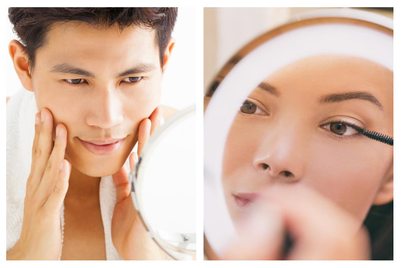
 “Foreign brands can learn from China’s quick-starting ‘Year Zero to Year One’ beauty brand launch model, says Lisa Shiqi Yu, Genlab CEO and former digital transformation head of L’Oreal China, “but when it comes to long-term brand building, the local beauty brands can learn a lot from foreign brands.”
“Foreign brands can learn from China’s quick-starting ‘Year Zero to Year One’ beauty brand launch model, says Lisa Shiqi Yu, Genlab CEO and former digital transformation head of L’Oreal China, “but when it comes to long-term brand building, the local beauty brands can learn a lot from foreign brands.”
Finding brand desirability, according to Yu and Whaley, comes from combining superior product quality with defining your brand purpose, delivered through extraordinary customer experiences.
Local Chinese beauty megabrand, Perfect Diary, was initially a social media innovator with a strong portfolio of products that could potentially propel it to a global audience.
But it still lacks a “look” that would differentiate itself from the others. “C-Beauty and Perfect Diary lack a defined, distinctive look that would drive awareness and consideration that you see with Korean brand, 3CE, or Los Angeles-based, Urban Decay,” says Yu.
Whaley looks to Chinese fast fashion sensation, Shein’s jump into the beauty business as a potential game-changer. “Shein will use the same predictive tools that it uses to develop fast fashion to deliver beauty products.”
Whaley also predicts another dynamic shift in e-commerce shopping in China due to the recent Covid lockdowns. “We will see a massive push in live e-commerce, with Bytedance’s Douyin (Tik Tok) becoming the big e-commerce category disrupter,” says Whaley.

“Brands have become addicted to live e-commerce because of its direct performance marketing impact. They are beginning to see a disconnect to sales from indirect social media posts from influencers on platforms such as Weibo,” says Whaley.
Lisa Shiqi Yu and Elijah Whaley’s interview is available on podcast, Shanghai Zhan, now on Apple Podcasts, Spotify, Google, Stitcher, Amazon Music, Xiao Yu Zho and via RSS.


.jpg&h=334&w=500&q=100&v=20250320&c=1)



.png&h=334&w=500&q=100&v=20250320&c=1)

.png&h=334&w=500&q=100&v=20250320&c=1)

.png&h=334&w=500&q=100&v=20250320&c=1)

.jpg&h=268&w=401&q=100&v=20250320&c=1)



.jpg&h=268&w=401&q=100&v=20250320&c=1)
.png&h=268&w=401&q=100&v=20250320&c=1)

